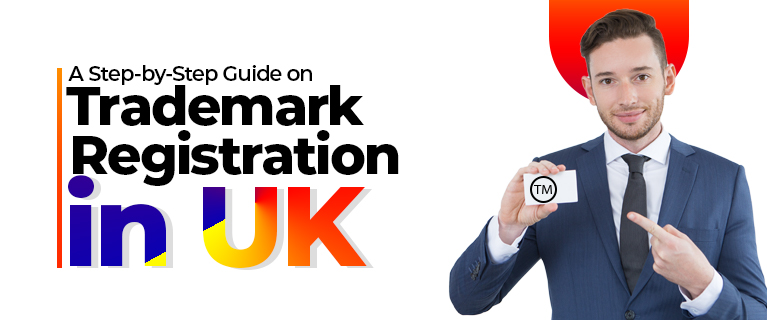In today’s dynamic business landscape, safeguarding your brand identity is paramount. Registering a trademark is one of the best ways to safeguard your brand. In the UK, trademark registration offers exclusive rights to the owner, preventing others from using similar marks in connection with similar goods or services. In this detailed guide, we’ll walk you through the intricacies of trademark registration in the UK, covering everything from the fundamentals to the finer points of the process.
Understanding Trademark Registration UK
Trademark registration in the UK is a crucial step for any business looking to establish a distinct brand identity. A trademark serves as a badge of origin, signalling to consumers that goods or services originate from a specific source. Whether it’s a word, logo, picture, sound, or even a smell, anything capable of being depicted graphically can be registered as a trademark, provided it meets certain criteria.
Read also this-: What is the Cost of Trademark Registration UK
Absolute Grounds for Trademark Registration UK
Before diving into the registration process, it’s essential to understand the absolute grounds for trademark registration in the UK. These criteria ensure that the mark is suitable for registration and includes factors such as distinctive character, non-descriptiveness, and adherence to public policy and morality.
Relative Grounds for Trademark Registration UK
In addition to absolute grounds, trademark registration in the UK is also subject to relative grounds, which consider existing rights held by third parties. These rights could include registered trademarks, prior non-registered marks, or other legal rights that may conflict with the proposed mark.
Benefits of Trademark Registration UK:
The benefits of trademark registration in the UK are numerous. From securing a monopoly over the use of the mark to preventing third parties from copying your brand, registered trademarks offer unparalleled protection and commercialization opportunities.
1. Legal Protection and Exclusive Rights:
Trademark registration in the UK provides legal protection and grants the registrant exclusive rights to use the mark in connection with their goods or services. This helps in safeguarding the brand identity and reputation.
2. Market Recognition and Brand Reputation:
By securing a trademark registration in the UK, businesses enhance their market recognition and build brand reputation. Consumers associate the trademark with quality, reliability, and authenticity, thereby boosting sales and customer loyalty.
3. Prevention of Infringement and Copycats:
Trademark registration UK enables businesses to prevent third parties from using similar or identical marks that may confuse consumers. It acts as a deterrent against infringement and protects the brand from copycats seeking to exploit its goodwill.
4. Exclusive Use and Monopoly Rights:
Registered trademarks grant the owner exclusive rights to use the mark in connection with the goods or services for which it is registered. This exclusive use provides a competitive advantage and establishes a monopoly over the brand identity in the marketplace.
Read also this-: How to Register my Trademark in the UK
5. Enhanced Marketability and Commercialization Opportunities:
Trademark registration in the UK enhances the marketability of goods and services by signalling authenticity and reliability to consumers. It also opens up commercialization opportunities, such as licensing and franchising, allowing businesses to expand their reach and revenue streams.
6. Enforcement and Legal Recourse:
With a registered trademark in the UK, businesses have stronger legal recourse in case of infringement. They can enforce their rights through litigation or alternative dispute resolution mechanisms, thereby protecting their brand investment and market position.
7. Global Protection through International Treaties:
UK trademark registration provides a foundation for global protection through international treaties such as the Madrid Protocol. Businesses can extend their trademark rights to other countries, facilitating international expansion and trade.
8. Asset Value and Business Growth:
Trademark registration UK enhances the asset value of the business and contributes to its growth potential. A registered trademark is an intangible asset that adds value to the balance sheet, attracts investors, and strengthens the brand’s position in the market.
9. Long-Term Investment and Legacy Protection:
By securing trademark registration in the UK, businesses make a long-term investment in protecting their brand legacy. It ensures that the brand remains distinctive and recognizable over time, preserving its value for future generations.
10. Consumer Confidence and Trust:
Registered trademarks instill confidence and trust in consumers by signifying a commitment to quality and consistency. It assures consumers that they are purchasing genuine products or services from a reputable source, fostering long-term relationships and brand loyalty.
In summary, trademark registration in the UK offers comprehensive protection, market advantages, and growth opportunities for businesses seeking to establish and safeguard their brand identity.
Do I Need a Solicitor for Trademark Registration UK?
While there is no legal requirement to use a solicitor for trademark registration in the UK, seeking professional assistance is highly recommended. Experienced trademark solicitors like TrademarkCart can navigate the complexities of the registration process, minimizing the risk of application failure or infringement claims.
Ownership of Trademarks:
Determining the registered owner of a trademark is a crucial decision that can impact the validity of the mark. Whether held by a natural person or a legal entity, careful consideration should be given to ownership to avoid potential cancellation for non-use.
How to Register a Trademark in the UK?
The trademark registration process in the UK involves several steps, including conducting clearance searches, determining the scope of protection, and completing the application form (TM3). Working with a trademark solicitor can streamline the process and increase the likelihood of successful registration.
1. Preliminary Clearance Searches:
Before initiating the Trademark Registration UK process, conduct comprehensive clearance searches to ensure the availability of the desired trademark. This involves searching existing trademarks registered in the UK Intellectual Property Office (UKIPO) database to identify any conflicting marks.
2. Trademark Eligibility and Scope Determination:
Assess the eligibility of the trademark for registration in the UK. Ensure that the mark meets the criteria of distinctiveness, non-descriptiveness, and non-genericness. Determine the scope of protection desired, including the classes of goods or services for which the mark will be used.
3. Consultation with Trademark Solicitor:
Consider seeking guidance from a trademark solicitor experienced in Trademark Registration UK. A solicitor can provide valuable insights, assist in conducting clearance searches, advise on the registrability of the mark, and ensure compliance with legal requirements throughout the registration process.
4. Completion of Application Form (TM3):
Prepare and complete the trademark application form TM3, available on the UKIPO website. Provide accurate information about the applicant, details of the trademark, and the classes of goods or services for which registration is sought. Include a clear representation of the mark, adhering to the UKIPO’s guidelines.
5. Submission of Application to UKIPO:
Submit the completed TM3 application form along with the requisite filing fees to the UK Intellectual Property Office. Ensure that all necessary documentation and supporting materials are included with the application to avoid delays or rejection.
6. Examination and Publication:
Upon receipt of the application, the UKIPO will conduct an examination to assess the compliance of the mark with legal requirements and the likelihood of confusion with existing trademarks. If the application meets the criteria, the trademark will be published in the UKIPO’s Trademarks Journal for opposition purposes.
Read also this-: Can I Use a Trademark from Another Country
7. Opposition Period and Response:
During the publication period, third parties have the opportunity to oppose the trademark registration if they believe it infringes upon their existing rights. If an opposition is filed, the applicant must respond accordingly, either by contesting the opposition or seeking to resolve the issues through negotiation or mediation.
8. Registration and Issuance of Certificate:
If no opposition is filed or successfully overcome, and all other requirements are met, the trademark will proceed to registration. The UKIPO will issue a registration certificate, confirming the trademark’s legal protection and exclusive rights in the UK for the specified classes of goods or services.
9. Maintenance and Renewal:
Once registered, maintain the trademark by actively using it in connection with the designated goods or services and monitoring for potential infringements. Renew the trademark registration periodically, typically every ten years, to ensure continued protection and enforceability of the trademark rights.
10. Trademark Enforcement and Protection:
After trademark registration, enforce and protect the trademark against infringement by monitoring unauthorized use and taking appropriate legal action against infringers. Utilize the registered trademark symbol (®) to indicate ownership and deter potential infringing activities.
By following these steps and working with a qualified trademark solicitor, businesses can successfully navigate the Trademark Registration UK process and secure valuable protection for their brand assets.
Appealing Rejected Applications:
If a trademark application is rejected, applicants have the option to appeal the decision through various channels, including the Appointed Person or the High Court. Exploring alternative routes of protection or modifying and resubmitting the application are also viable options depending on the circumstances.
Conclusion:
Trademark registration in the UK is a multifaceted process that requires careful planning and execution. From navigating the legal intricacies to maximizing the benefits of registration, working with experienced trademark solicitors can help businesses establish and protect their brand identity effectively. By understanding the fundamentals of trademark registration and engaging in proactive brand management, businesses can safeguard their intellectual property rights and position themselves for long-term success in the marketplace.


